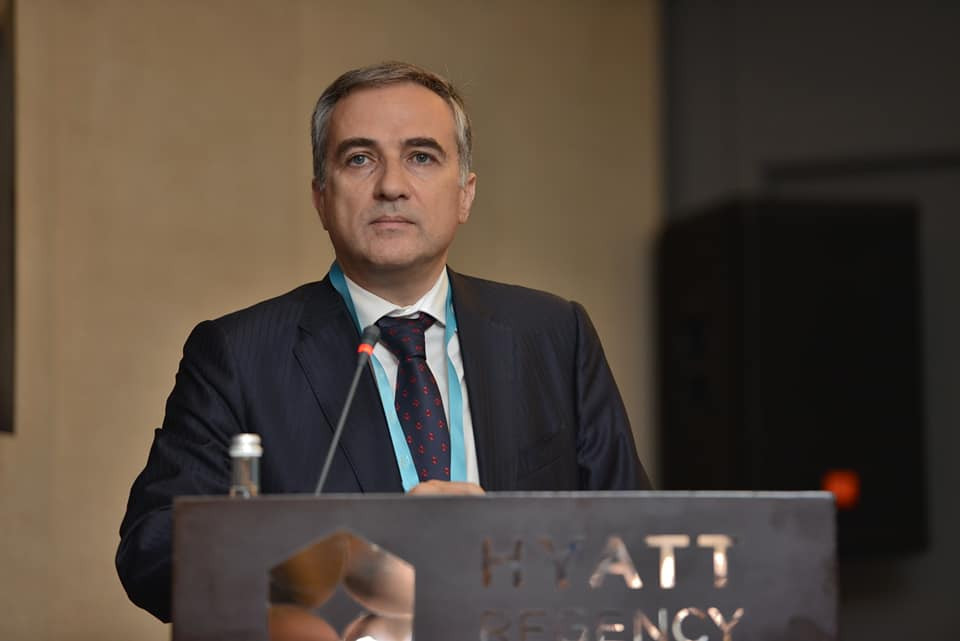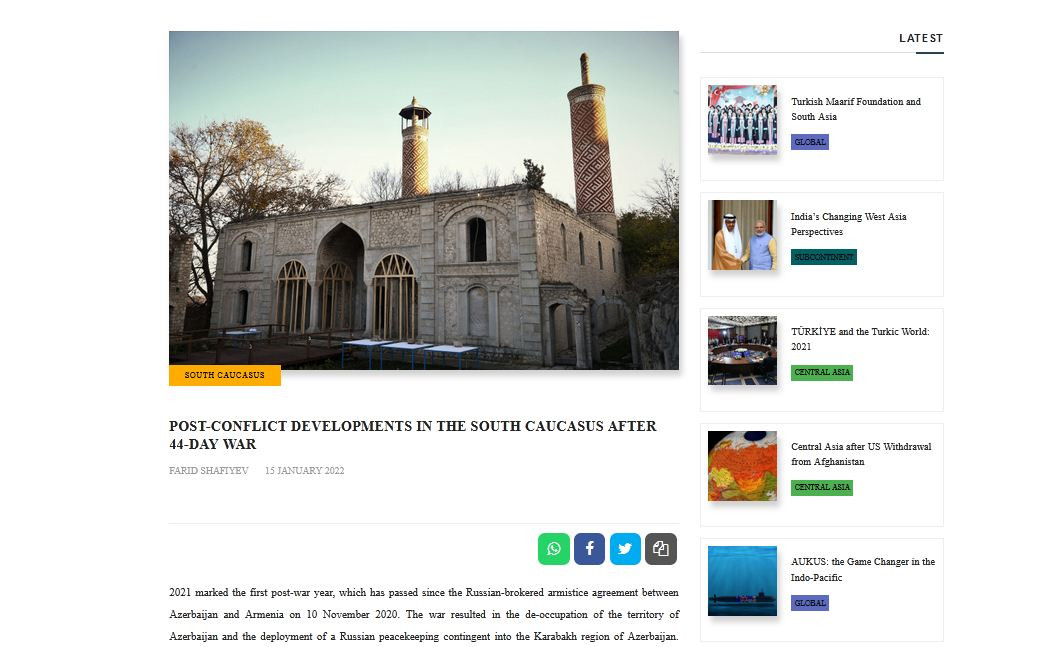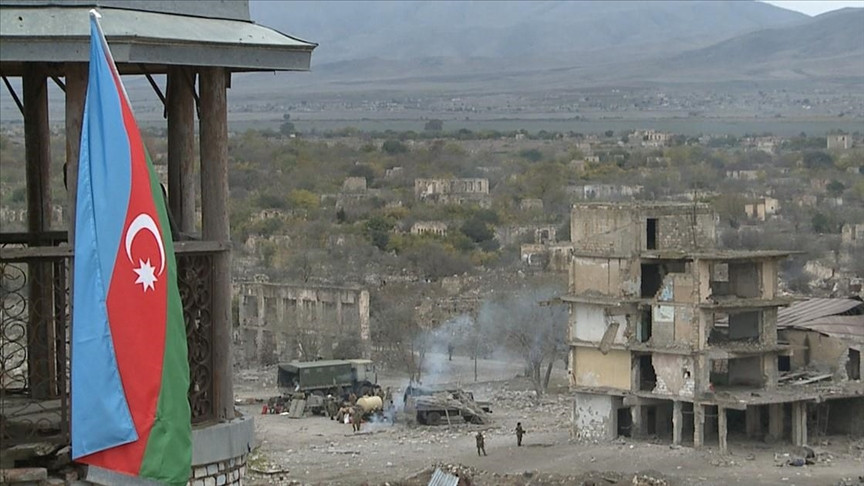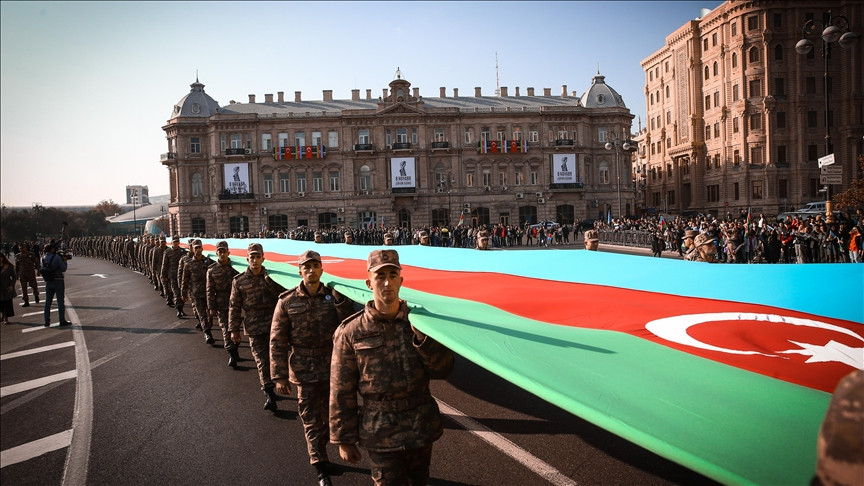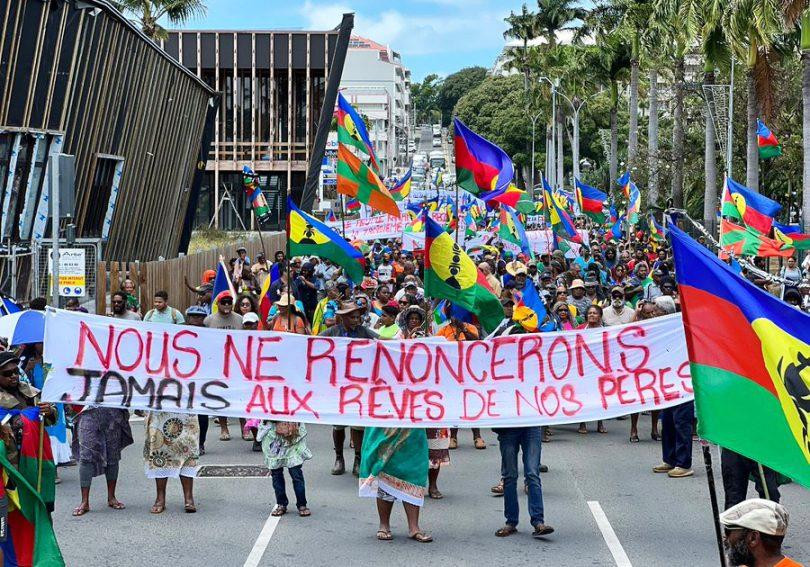2021 marked the first post-war year, which has passed since the Russian-brokered armistice agreement between Azerbaijan and Armenia on 10 November 2020. The war resulted in the de-occupation of the territory of Azerbaijan and the deployment of a Russian peacekeeping contingent into the Karabakh region of Azerbaijan. Meanwhile, a joint Turkish-Russian Center for monitoring the ceasefire was established in Aghdam. While the main significance of the document was to stop the bloody battles and return several regions to Azerbaijan without human losses, in fact, the 10 November tripartite statement was the capitulation of Armenia.
In the post-conflict development, Azerbaijan focuses on implementing the issues enshrined in the tripartite statement. Unfortunately, some items of the declaration have not yet been implemented. One of the concerns of Baku is that the Armenian military units remain in the areas under the control of Russian peacekeepers. According to article 4 of the tripartite statement, however, the peacekeeping contingent of the Russian Federation was to be deployed in parallel with the withdrawal of the Armenian armed forces.
Besides, the 10 November statement stipulated the opening of communications, including between Azerbaijan and its Nakhichevan exclave – so-called Zangezur corridor. On 11 January 202, in Moscow, leaders of Armenia, Azerbaijan and Russia sealed a deal to create the trilateral commission on transport issues. Unfortunately, until recently, Armenia obstructed the work of the commission and the Zangezur corridor in particular.
Some other vital issues, such as delimitation and demarcation of the state border between Armenia and Azerbaijan, are yet to be addressed. However, serious disagreements over future maps notwithstanding, Azerbaijan's President Ilham Aliyev and Armenia's Prime Minister Nikol Pashinyan have made some progress in their meetings in Sochi on 26th November and Brussels on 14th December.
On 26 November, in Sochi, Russian President Vladimir Putin, Azerbaijani President Ilham Aliyev and Armenian Prime Minister Nikol Pashinyan reaffirmed commitment to the further and consistent implementation and unconditional observance of all the provisions of the 10 November 2020 and 11 January 2021 statements, including unblocking all economic and transportation links in the region. The parties have also agreed to create a bilateral commission on the delimitation of the state border between Azerbaijan and Armenia with the consultative assistance of the Russian Federation.
President Aliyev had a joint meeting with President of the European Council Charles Michel and Prime Minister Pashinyan in Brussels on December 14. Following the trilateral meeting, the EC President Charles Michel stressed resolving key humanitarian issues, such as handover of all remaining mine-maps by Armenia and addressing the fate of missing persons. He added that the EU will continue to support humanitarian de-mining efforts, including providing expert advice and assistance to conflict-affected populations, rehabilitation and reconstruction. President Michel also highlighted the importance of restoring communications infrastructure between Armenia and Azerbaijan in particular and the South Caucasus more broadly while fully respecting the sovereignty of all countries. Simultaneously, the restoration of railway lines, with appropriate arrangements for border and customs controls, was agreed upon based on the principle of reciprocity.
Another geopolitically intriguing post-conflict mechanism is the “3+3” cooperation platform initiative put forward by Turkey’s President Erdogan and Azerbaijan President Aliyev after the 44-Day War. The first meeting of the platform with the representation of Azerbaijan, Turkey, Russia, Iran and Armenia was held in Moscow on 10 December. The “3+3” format fully responds to the new realities in the region after the end of the 44-day war, and this platform will allow regional players to jointly address conflicting issues in the South Caucasus altogether. In this regard, the “3+3” platform can change the picture of the South Caucasus positively. Although Georgia has officially stated that it would not join the platform due to its tense relations with Russia, the door remains open for Tbilisi, concern of which Azerbaijan fully comprehends.
On another track, the issue of normalization between Armenia and Turkey has come up within the framework of this platform. Special envoys have been appointed to establish a direct dialogue between the two countries as the first step, and charter flights to Yerevan from Istanbul are planning to be launched soon. As is known, Turkey currently has no diplomatic relations with Armenia, and the border between the two countries has been closed since 1993 at the initiative of Ankara due to the Armenian occupation of Azerbaijani territories.
One of the most noteworthy post-conflict developments was the Shusha Declaration signed on 15 June by President Aliyev and President Erdogan. According to the declaration, in the event of a threat or attack on the sovereignty, territorial integrity and security of internationally recognized borders by a third state or states, the parties will assist each other in accordance with the UN Principles and the Charter. The signing of the Shusha Declaration consequently upgraded relations between the two countries to a qualitatively new level of the alliance. In the meantime, the visit of Turkey’s President Erdogan as the first foreign head of state to Karabakh, in particular, Shusha, which was liberated from Armenian occupation, is of political and historical significance.
The other post-conflict remarkable occurrence was the Memorandum of Understanding on the joint exploration and development of hydrocarbon resources of the “Dostlug” (“Friendship”) field in the Caspian Sea signed by Azerbaijan and Turkmenistan on 21 January 2021. According to the agreement, both countries have agreed to allocate 30% hydrocarbon resources for Azerbaijan and 70% for Turkmenistan. To note, the field called Kapaz by Azerbaijan and Sardar by Turkmenistan has been the subject of dispute between Baku and Ashgabat for many years. It is obvious that this agreement will also create additional incentives for expanding the processes of friendship and cooperation in the Caspian Sea. This applies to the joint development of Turkmen gas and its transportation to Europe via Azerbaijan.
Furthermore, Azerbaijan, Iran and Turkmenistan signed a tripartite agreement on gas exchange within the framework of the 15th Summit of the Economic Cooperation Organization (ECO) in Ashgabat on 28 November. According to the gas swap deal, 5-6 million cubic meters of gas on a daily basis, in other words up to 1.5-2 billion cubic meters of gas a year will be sent from Turkmenistan to Azerbaijan via Iran. The contract is indefinite and has started to be implemented from 22 December this year. By transporting Turkmen natural gas to Azerbaijan under the agreement, Iran will be able to meet the gas needs of its five provinces.
In general, a new pro-cooperation development in the South Caucasus and Caspian region was inspired by the geopolitical shift after the 44-day war. Against this background of this reality, new opportunities have emerged for reconciliation and cooperation in the region. Sustainable peace can be further strengthened if Armenia denounces territorial claims, recognize the territorial integrity of Azerbaijan and Turkey, and sign a comprehensive peace treaty. This will ultimately lead to normalizing the relations and creating an atmosphere of cooperation among the countries of the region. However, the question remains unanswered: will Armenia be able to depart from the past burden and turn a page of animosity and isolation?
https://yakasya.com/en/post-conflict-developments-in-the-south-caucasus-after-44-day-war-13

